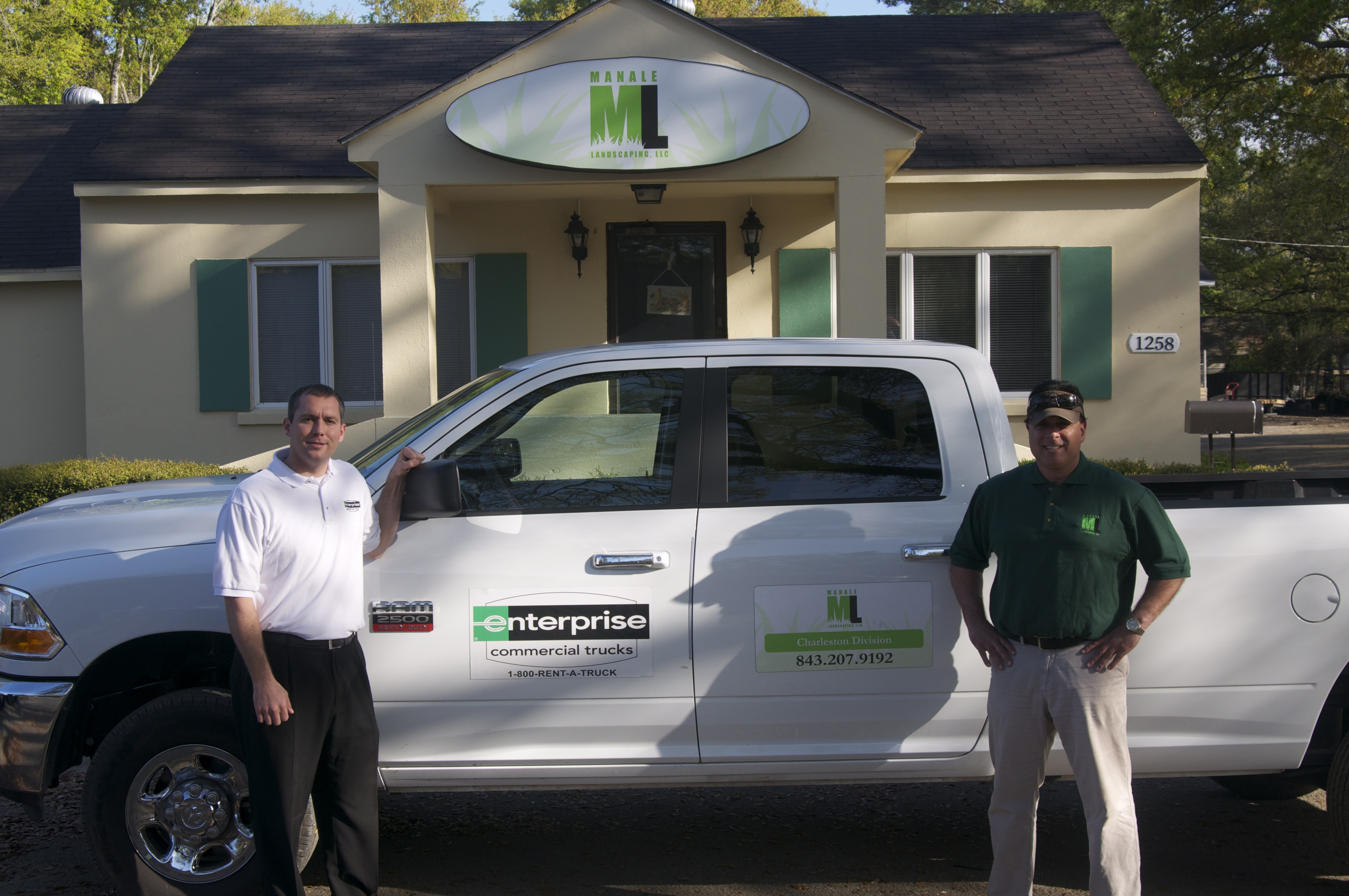
Green Industry professionals who want to lower expenses may need to look no further than the fleet of trucks on their parking lot for the answer. In an uncertain economy, tying up lines of credit to pay for extra trucks that might be needed only a few weeks a year to meet peak-season demand may not be the most cost-efficient strategy. And taking on the additional maintenance, repairs and insurance, as well as title registration, licensing and inspections for those vehicles only compounds the time and financial commitment to a depreciating asset.
A money-saving alternative is to rent trucks only when they are needed and deduct the rental payments as an operating expense. This approach makes it simpler to identify expenses, and limits exposure to frequently changing depreciation schedules and tax implications. In addition, renting the right size truck to fit a particular job can yield further savings in terms of fuel economy.
Manale Landscaping is a good example. Specializing in serving builders of large residential developments throughout areas of Charleston, Charlotte, Greenville and Myrtle Beach in North and South Carolina, the company relies on renting trucks from its local office of Enterprise Commercial Trucks.
“Renting trucks has not only reduced our operating costs, it has enabled us to use our available credit to invest in additional eq

uipment and personnel to help grow our business and serve more customers,” says owner Damon Manale, who has used Enterprise for the past three years. “Our local Enterprise team understands our business and is prepared to respond to our needs, even on short notice.”
Manale, who typically rents from three to 10 medium-duty pick-up trucks, adds his own magnetic signage to promote his company’s name on vehicles that are always clean and well maintained.
“And because we’re a regular customer of Enterprise, they work with us to structure pricing that’s below what it would cost us to own and maintain a fleet of comparable vehicles that we need only periodically,” said Manale.
Many companies with trucks and vans that are used less than 75% of the time throughout the year find rental an attractive solution. Businesses also can do a more detailed cost analysis that considers factors such as the cost per mile, depreciation and the operational expenses of managing a company fleet. Using direct cost figures, it is possible to compare the cost per mile
to rent a truck to the costs for maintenance and repairs. A short-term vehicle rental can be a much more flexible way to supplement a fleet than committing to purchasing or leasing vehicles.
Not all rental trucks and truck rental companies are the same. Some important differences include having trucks that are dedicated and fully equipped for commercial use with automatic transmission and are non-CDL, meaning no commercial driver’s license is required for drivers. Having late-model, clean and well-maintained vehicles can also contribute to customer satisfaction when the rental truck is parked on their property, and a 24-hour roadside assistance program is also important.
Another difference is working with a truck rental company that has the flexibility and resources to develop customized solutions for individual business needs, including six to 12-month rental programs, or shorter term rentals by the month, week or day, as well as a wide selection of vehicles, such as 3/4- to 1-ton pickup trucks, 3/4-ton cargo vans, 12- to 15-ft. parcel vans and 16- to 26-ft. box trucks. Choices can also include having a plain white truck or one that is customized with the commercial renter’s business logo.
Invoicing and billing policies can vary widely, and it’s important to work with a truck rental company that has the flexibility to offer a variety of invoicing options, as well as customized billing, credit card or direct bill option on a daily, weekly or monthly schedule. Having a local account representative who works one-on-one with customers on a regular basis can go a long way in developing a program that “fits” the customer’s needs.

